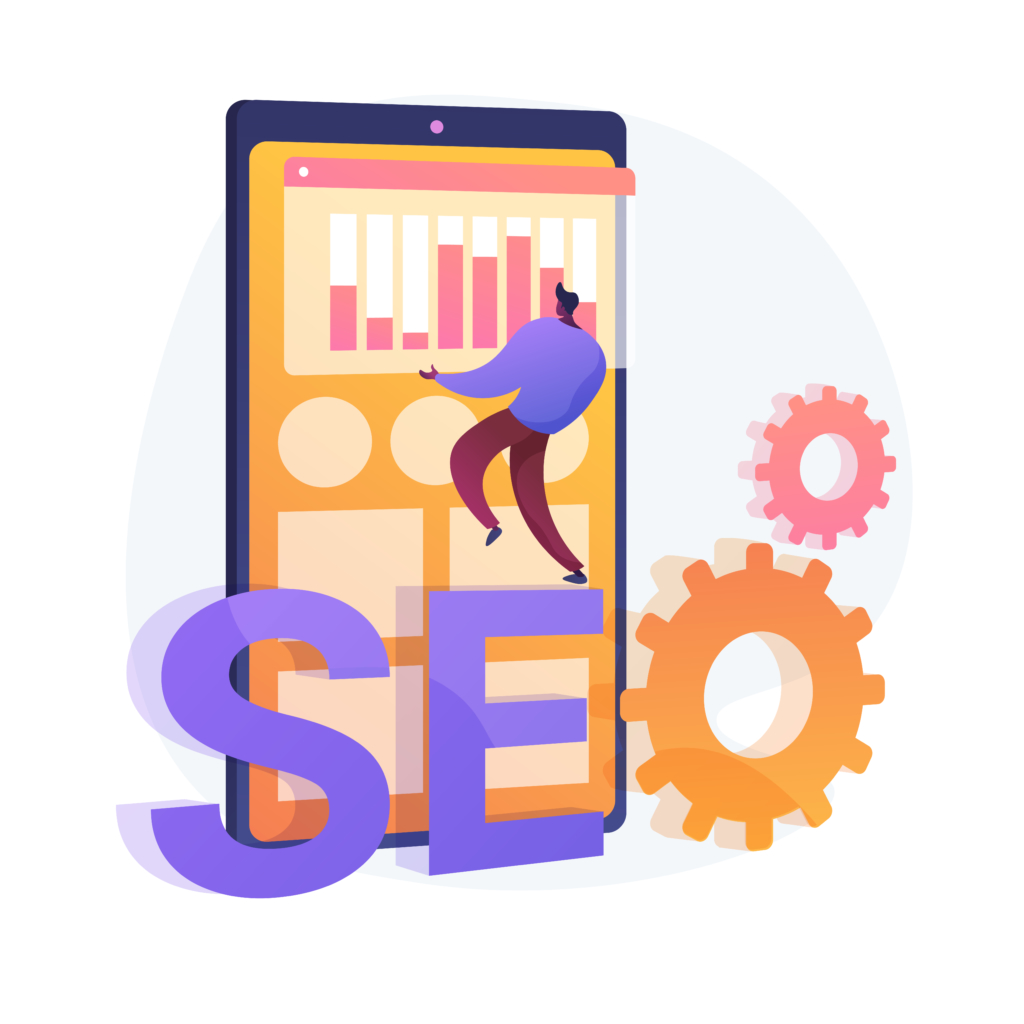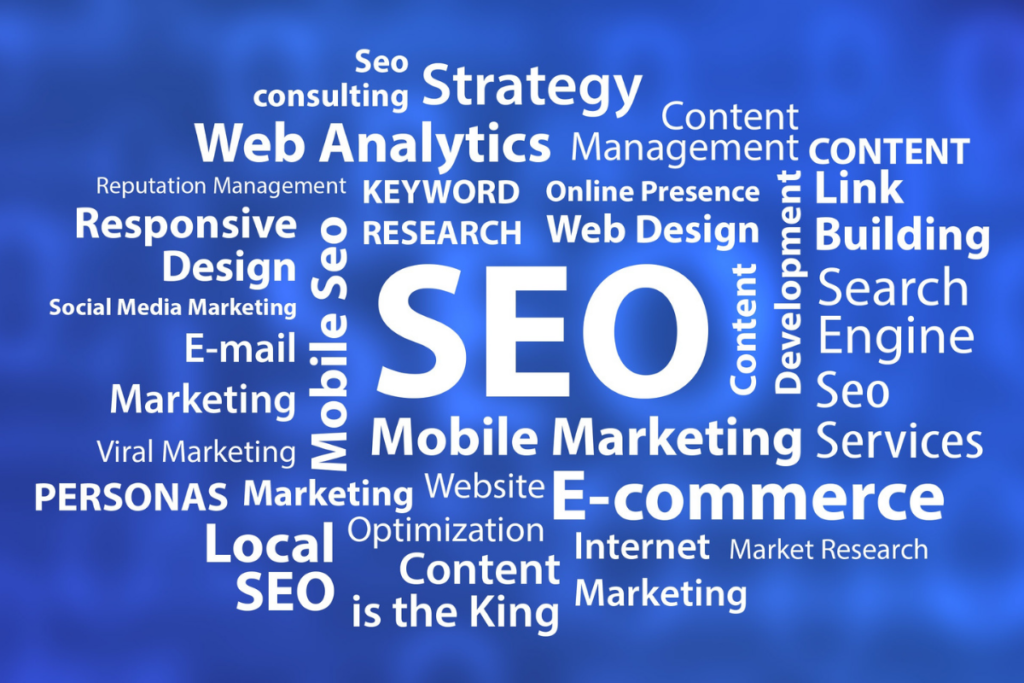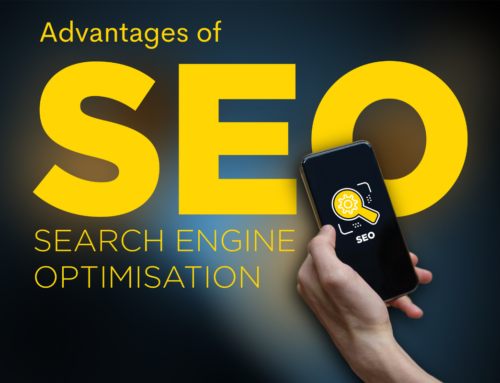What is SEO:
SEO Siginfies Search engine optimization is the process of making your site rank as higher as possible in the Google search engine when someone types in “SEO services” (or whatever you sell or talk about.) The higher rank you will get, the more visible your website is, and the more traffic and sales your business is likely to generate.
The importance of SEO is based on being classified at the top of the organic listings. The importance of Search engine optimization is based on being classified at the top of the organic listings.
Search engine optimization is used to get to the top of the search results. Creating a relevant and optimised website to truly compete for the keywords that can produce sales for your company requires a variety of strategies and techniques.
How Search engine optimization works? :

Source: Freepik
The material on your website is referred to as On-Page ranking factors. This includes the content you post on your blog and forums, as well as the way you structure the content using HTML coding and hints to make it easier for search engines to find and understand it. The importance of Search engine optimization lies in being classified at the top of the organic listings. Search engine optimization is used to get to the top of the search results. Creating a relevant and optimised website to truly compete for the keywords that can produce sales for your company requires a variety of strategies and techniques.
Ranking factors:
- Quality content
- Keywords
- Backlinks
- Technical
Quality content:
Regularly publishing new content will help you create a loyal audience, resulting in more consistent traffic to your web. The more visitors your website receives and the more traffic it generates, the more authority it has with search engines. This will boost your page’s Search engine optimization and make it rank higher in search results.
Keywords:
SEO keywords can range from single words to complex sentences, and they’re used to notify website content in order to enhance organic search traffic. When your customer is looking for something similar to your brand, they need them
Backlinks:
A backlink is basically a link from one website to another. Backlinks are used to ranking signal by search engines like Google because when one website links to another, it indicates that the content is valuable.
Technical:
The way your website is physically coded may have an effect on its ranking. As search engines crawl your pages, they look for key elements that tell them what each page is about. Search engines can quickly scan and index the presented information thanks to proper coding and markup.
Types of SEO
- On-page SEO
- Off-page SEO
- Technical SEO
On-page SEO:
On-page SEO is a set of techniques and best practices for your web pages to make them more search-engine friendly and thus, boost your rankings.
In On-page SEO we have to focus on URLs, Images, Image file name, title and Meta description, page load speed, etc.
Off-page SEO:
Off-page SEO (also called off-site SEO) refers to any actions you take outside of your website to improve your SEO. Building links, writing guest posts, monitoring social media, and other tasks are frequently included.
Technical SEO:
Technical SEO is the method of ensuring that a website follows the technical requirements of current search engines in order to improve organic rankings. Crawling, indexing, rendering, and the website design are all important aspects of technical SEO.
What is the key to success in Search engine optimization in 2021?
These are the things you’ll need if you want to outrank your competitors.
-
Search-Intent Oriented Content :
The fundamental purpose a user has when typing a query into a search engine is known as Search Intent (also known as “User Intent”). Informational, commercial, navigational, and transactional Search Intent are some of the most common.
-
Keyword Research:
This is an integral part of the search engine optimization process. Digital marketers must identify, locate, and evaluate prominent search words and phrases that people use while looking for products, services, or other information in search engines.
-
Competitor research:
Competitor research entails looking at your SEO competitors’ ties, keywords, content, and other factors in order to reverse-engineer the most promising aspects of their strategies into your own Search engine optimization strategy.
-
Page speed optimization:
Page speed refers to how quickly content on a single page load. Site speed, on the other hand, measures page speed for a sample of your site’s page views.
-
Technical audit:
A professional Search engine optimization audit is a procedure for examining the technical aspects of your website’s search engine optimization. It examines the health of a website and determines what improvements could be needed.
TOOLS FOR SEARCH ENGINE OPTIMIZATION:
- AHREF
- SEMRUSH
- SPYFU
- GOOGLE KEYWORD PLANNER
- GOOGLE SEARCH CONSOLE
- UBERSUGGEST








Leave A Comment